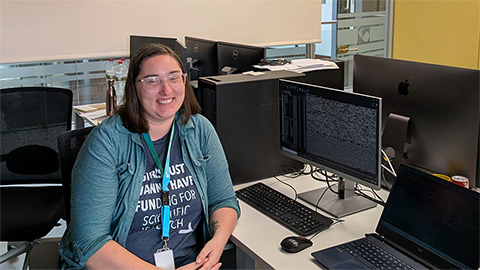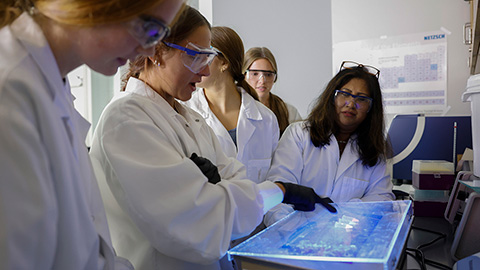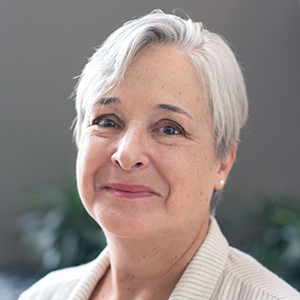
Science will suffer
“We are constantly told that we are bringing politics into science or creating identity politics. Our identity is not political; our identity is politicized. Who we are is a matter of debate because people want to debate our rights.” —Alfredo Carpineti, Pride in STEM
When the ASBMB Today staff started thinking about a feature article to anchor our first Pride Issue, we zeroed in on the recent crop of laws targeting LGBTQIA+ rights. We wondered if these laws were having an impact on the career decisions of our members. How were universities and other institutions responding to this flurry of legislation? If a scientist or a member of their family was in the targeted community, would they avoid working in states that had passed or were considering these laws?
It seemed straightforward. We have members all over the country — some in leadership positions at universities in affected states. I figured we could just have a writer call them up and get the scoop.
But people did not want to talk. Or if they did, they didn’t want to be named. I was told by a number of members — including straight, cis-gender scientists living and working in states unaffected by the new laws — that the subject was toxic or radioactive. These folks are afraid of losing their jobs.
The politicians who put those laws on the books have done more than restrict drag shows and penalize trans kids and their families. They have created a climate of fear, and even the most powerful faculty members in the bluest of states do not feel safe.
I’m so grateful to the people who went on the record. Standing up in this climate is risky. And we are less likely to speak up on issues we think don’t directly affect us or the people around us. Many in the LGBTQIA+ community choose to stay quiet about their identities, so it might be hard to tell if state politics are influencing the next move of someone in your lab.
Importantly, as talented researchers choose to settle in states where they feel safer, the divide between have and have-not universities will only widen. And science will suffer.
Enjoy reading ASBMB Today?
Become a member to receive the print edition four times a year and the digital edition monthly.
Learn moreGet the latest from ASBMB Today
Enter your email address, and we’ll send you a weekly email with recent articles, interviews and more.
Latest in Opinions
Opinions highlights or most popular articles

Making my spicy brain work for me
Researcher Reid Blanchett reflects on her journey navigating mental health struggles through graduate school. She found a new path in bioinformatics, proving that science can be flexible, forgiving and full of second chances.

The tortoise wins: How slowing down saved my Ph.D.
Graduate student Amy Bounds reflects on how slowing down in the lab not only improved her relationship with work but also made her a more productive scientist.

How pediatric cataracts shaped my scientific journey
Undergraduate student Grace Jones shares how she transformed her childhood cataract diagnosis into a scientific purpose. She explores how biochemistry can bring a clearer vision to others, and how personal history can shape discovery.

Debugging my code and teaching with ChatGPT
AI tools like ChatGPT have changed the way an assistant professor teaches and does research. But, he asserts that real growth still comes from struggle, and educators must help students use AI wisely — as scaffolds, not shortcuts.

AI in the lab: The power of smarter questions
An assistant professor discusses AI's evolution from a buzzword to a trusted research partner. It helps streamline reviews, troubleshoot code, save time and spark ideas, but its success relies on combining AI with expertise and critical thinking.

How AlphaFold transformed my classroom into a research lab
A high school science teacher reflects on how AI-integrated technologies help her students ponder realistic research questions with hands-on learning.

